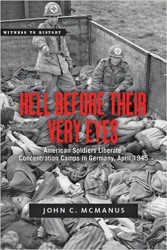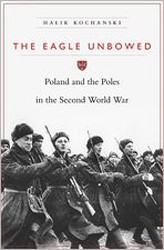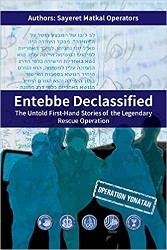Although Jews have been represented in all branches of the military and have served in every conflict, lingering stereotypes have cast doubt on this area of Jewish accomplishment. Admiral Hyman Rickover was not only the longest serving active-duty officer in U.S. history, but he also pioneered and led the program that developed nuclear-powered submarines, reformed education at the Naval Academy, and implemented strict protocols for safety in nuclear power plants. Yet this representative of military power was a Jewish immigrant who escaped the persecution and poverty of his Polish shtetl. Marc Wortman’s fascinating biography, part of the Yale Jewish Lives series, captures the many contradictions of his accomplished subject.
Rickover’s life is testimony to the role of chance and circumstance, along with talent, in determining any individual’s success. Working his way through public high school in Chicago while holding down a job, Hyman was presented with a rare opportunity when his family’s boarder had a connection to the U.S. Representative Adolph J. Sabath, who nominated Hyman as a candidate to the Naval Academy. Through the transactional nature of local politics, he became one of the two-percent minority of Jewish students there. Diligent and focused, he was able to overcome weaknesses in his education to graduate and then study electrical engineering at Columbia University. Soon he was part of a new group of technocrats determined to transform society.
Much of Wortman’s biography involves explaining the engineering challenges that Rickover confronted in developing ships that would be faster, safer, and have greater endurance, all through the use of nuclear power. He explains these technical problems clearly and shows how they intersected with political and organizational issues. At the end of World War II, the use of atomic energy threatened to make the Navy obsolete, as the Air Force would take precedence in transporting the powerful atomic weapons in the future. Rickover was aggressive in promoting controlled nuclear fission as a means of powering ships, and also producing energy in peacetime. When the Soviets cut off access to West Berlin in 1948, the accelerating Cold War made his ideas more urgent, and he was placed in charge of the Navy’s new Nuclear Power Branch.
But Rickover’s career was constantly interrupted by contentious disputes with his colleagues and superiors. Wortman characterizes him as “irascible and obnoxious,” a man ostensibly dedicated to public service who was often selfish and narrow-minded. His behavior towards students applying to his programs was often abusive, and, late in his career, an investigation found him guilty of the corrupt use of gifts in his official capacity. Openly disdainful of naval traditions when it suited him, Rickover denied others the right to follow his path in challenging authority.
How did his Jewish background influence these qualities? Here, Wortman is speculative. He suggests that the rigors of his original cheder education helped to prepare him for later intellectual pursuits, yet he abandoned all Jewish religious practice, marrying a non-Jewish woman and raising his son as a Christian. When Rickover was originally denied promotion from captain to rear admiral, his supporters alleged antisemitism as the reason. Wortman suggests that it is difficult to separate prejudice against Rickover as a Jew from the personal hostility and tactlessness which had made him enemies. In a sense, that paradox encapsulates the ironies of Rickover’s career, which was unusual in the scale of his influence but also emblematic of many Jews prominent in public life.
Emily Schneider writes about literature, feminism, and culture for Tablet, The Forward, The Horn Book, and other publications, and writes about children’s books on her blog. She has a Ph.D. in Romance Languages and Literatures.





